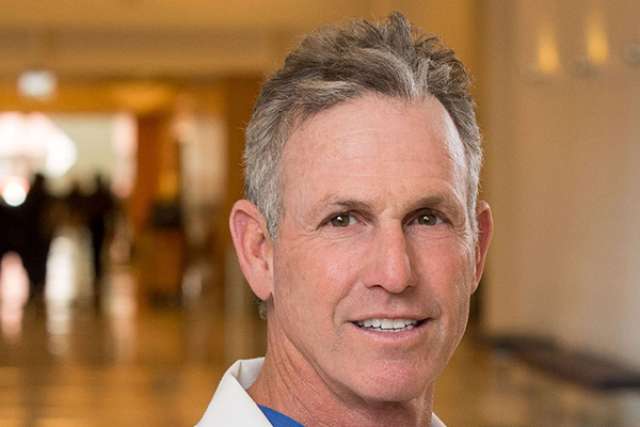The David Geffen School of Medicine at UCLA is leading a project in collaboration with the University of Iowa Carver College of Medicine to study ways to reduce the risk for COVID-19 infection among emergency department workers.
The Centers for Disease Control and Prevention (CDC) has provided a $3.7 million grant to the UCLA Department of Emergency Medicine to fund the COVID-19 Evaluation of Risk in Emergency Departments (COVERED) project. Researchers will enroll up to 1,600 emergency department physicians, nurses and staff at 20 academic medical centers across the country. Over 12 weeks, participants will report on their exposures and provide serum specimens and swabs to test for infection with the novel coronavirus.
Dr. David Talan, professor of emergency medicine and medicine in the Division of Infectious Diseases at the UCLA medical school will lead the trial with co-principal investigator Dr. Nicholas Mohr, vice chair for research in the Department of Emergency Medicine at the University of Iowa. Talan is an attending physician in the Ronald Reagan UCLA Medical Center emergency department. Dr. William Mower, professor of emergency medicine at UCLA's Geffen School, will be the site’s principal investigator and biostatistician.
"We will attempt to answer the two most important questions for emergency providers: 'What is my risk of becoming infected with COVID-19 by doing my job?' and 'What are the ways that the risk can be lessened?'" Talan said. "The study is among the highest priorities of the CDC, with the goal to maintain a healthy and confident emergency workforce that Americans can continue to rely upon in this and future health care crises."
Ultimately, the researchers hope to determine which practices and personal protective equipment (PPE) — face masks, face shields, gowns and gloves, among other equipment — are most effective to prevent acquisition of COVID-19 in an emergency department setting, where medical teams often don't know if incoming patients are infected with the virus and where emergency procedures can increase the risk of spreading the virus through the air.
"We don't get many opportunities to gauge the risk of transmission during a global pandemic, so this study is somewhat unique," Mohr said. "It is critical, however, to identify ways to reduce the risk of transmission to health care workers so that we can continue to take care of the people in our communities who need our help."
The COVERED project is a collaboration between EMERGEncy ID Net, a CDC-supported network led by Talan since 1995 and consisting of 12 U.S. emergency departments studying emerging infectious diseases, and the National Emergency Airway Registry (NEAR), a multicenter project studying intubation of patients in emergency departments.
Study participants will be divided into four groups:
- Emergency department physicians who perform endotracheal intubation (inserting a breathing tube) in confirmed COVID-19 patients;
- Emergency department physicians who do not perform endotracheal intubations;
- Emergency department nurses;
- Non-clinical emergency department staff
The researchers will measure the risk of contracting COVID-19 while providing patient care. They also will focus on the effects of endotracheal intubation, a procedure that is known to produce airborne droplets that can spread infections to health care workers.



